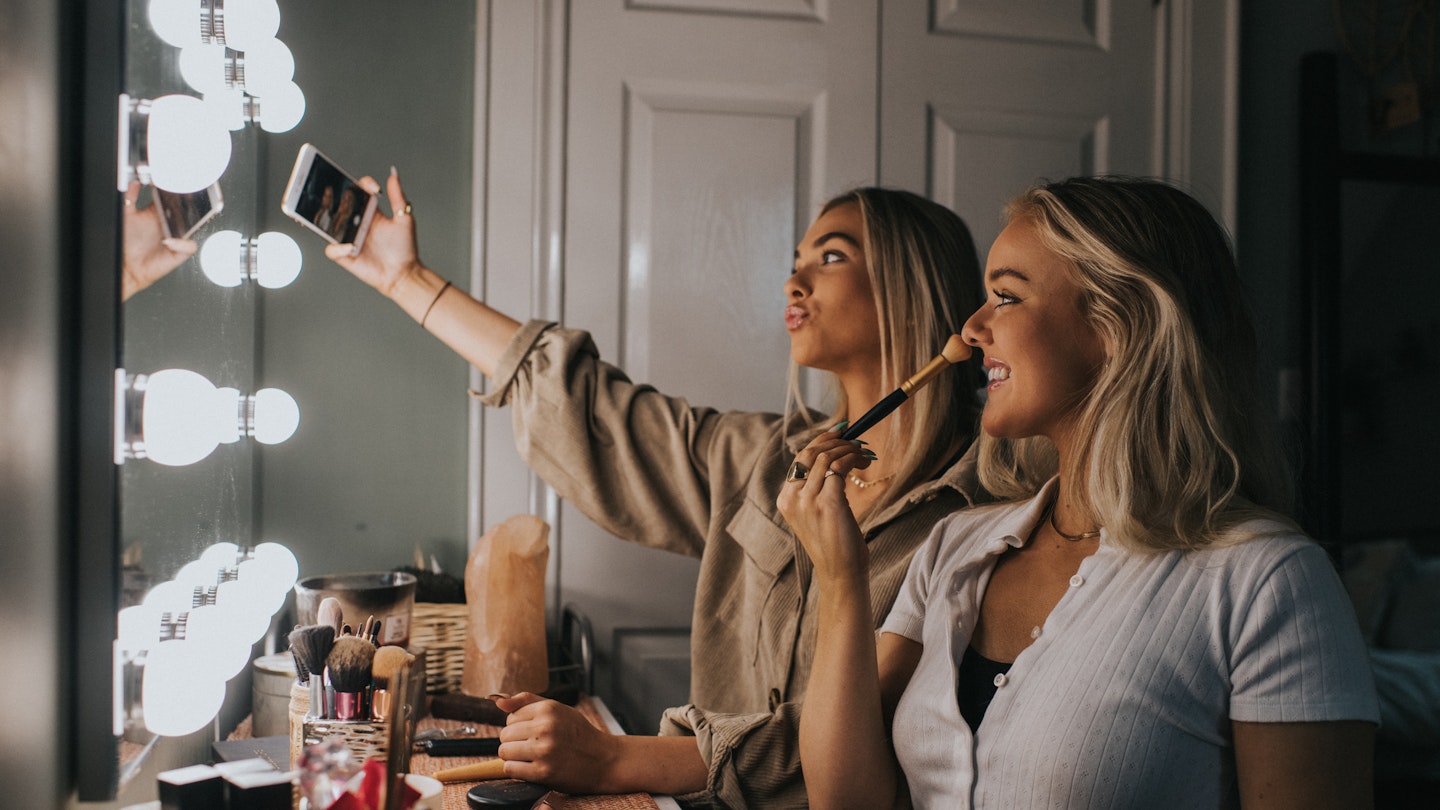Growing up, I believed I had hacked my mother’s system. I understood why she objected to short skirts, cropped tops, the low slung and the low cut. Long before my teens started, she made it very clear that my taste in outfits ‘might give people the wrong idea’, and the right idea could be established if I followed her advice and shrouded myself in an M&S navy cardigan.
However, I was pretty sure that she wouldn’t object to a pair of trousers. They were cut as high as permitted in 2003, cresting a full inch above my buttocks. They were fitted, but not tight, flaring into a bootleg appropriate to the era. They were cream. They were quite glittery. But they were not going to draw attention to my erogenous zones or contravene the sixth form dress code.
‘You’re not wearing those to school, are you?’ she said as I descended the stairs. (If my mother had been waiting for Scarlett O’Hara at the bottom of the staircase, Scarlett would have chosen to stay upstairs, and Tara would have burned down with her in it.)
‘Why not?’ I was genuinely confused, even though I knew she wasn’t really asking me a question.
‘Well, obviously, they’re evening trousers. Go and change.’ I knew better than to try to argue. I left, in pursuit of jeans, as Mum muttered something about John Travolta.
My mum had a lot of opinions about my taste in clothes – usually, about the way my body looked in them. These were always offered with nothing but love, concern, and a sense of parental duty. She did it to my five younger sisters. My friends had the same issue with their mums. Our aunts joined in. Broadly, the message we heard from them was this. To be a woman is to be stared at, and judged. Never suggest that you are sexy, or sparkly, or loud. Best not to draw too much attention to yourself.
The girls from school took against a drama club friend for wearing a bright red dress.
I still remember a party I gave when I was 16, attended by an ill-considered mix of school friends and drama club friends. The girls from school took against a drama club friend for wearing a bright red dress. We attended a single-sex school, and we were encouraged to hold sisterly values, but at the same time led to believe female ‘bitchiness’ was in the air we breathed, as constant as the tide, waves of it crashing over our heads. We didn’t stop to wonder whether we subconsciously hated other women because the world did too. We didn’t stop to ask where our ideas about what women should look like had originated, or what our mothers and aunts believed they might be saving us from.
The clinical psychologist Dr Becky Kennedy has suggested that as a mother she has made a decision not to comment on her children’s appearance. In The Sunday Times, India Knight wonders whether she should follow suit, commenting: ‘The constant remarks we all make to our daughters about their appearance are deeply unhelpful. They teach girls that in order to be pleasing, they have to look pretty or charming or beautiful or groomed, or even that you love them more when they look especially attractive.’ She points out that ‘we’ve been doing it for generations and now it’s almost a reflex action’ but ‘we don’t do it to boys’.
I love to give compliments, but I realise I’m reinforcing the problem, rooting a woman’s value in the way she looks.
I do it to my girlfriends constantly. I’d never shame them for glittery trousers, but ‘You look AMAZING! You look INCREDIBLE! What a DRESS!’ flies out of my mouth as readily as ‘Hello’. Equally, I expect them to greet me by implying I must be on my way to have my picture taken on a red carpet. I love to give compliments, but I realise I’m reinforcing the problem, rooting a woman’s value in the way she looks. Maybe it’s because I still feel so insecure, after growing up being told, implicitly, that it matters so much. I seek to reassure, because I crave reassurance.
We can’t blame our mothers, or each other, for reinforcing a gender stereotype. It’s part of a well-intentioned attempt to protect and empower the girls and women we love. We can ask ourselves how we got here, and where these strange priorities came from. We can slowly start to dismantle the fortress of comments and judgements. It is not making us any stronger.
I don’t think I’ll ever be able to stop positively commenting on the way my friends and sisters look. It’s a language we have all grown up learning and speaking. Rationally, I want to believe that the way I look is insignificant, compared with my values and actions. Yet in my heart, I still I want to seem pretty. I want to please.
However, I am going to try to speak with great care to my young niece, and my friends’ daughters. I want to praise their ideas, and celebrate their curiosity. I want to encourage them to be as bold and vivid as they dare; to draw as much attention to themselves as they like. I’m thinking in particular of a five-year-old girl I know who has picked out a dress to wear for a wedding this weekend. Once I would have told her how beautiful she looked in her outfit. Now, I’m going to compliment her style, her taste and her choice.
We might struggle with the legacy our mothers have left us, but we have the chance to build a new one. I can see the future, and it’s wearing disco trousers.
READ MORE: Lizzo Is Smashing It - But Society Is Still Fatphobic
